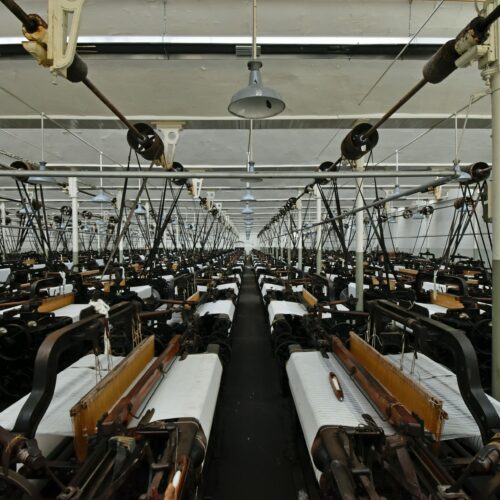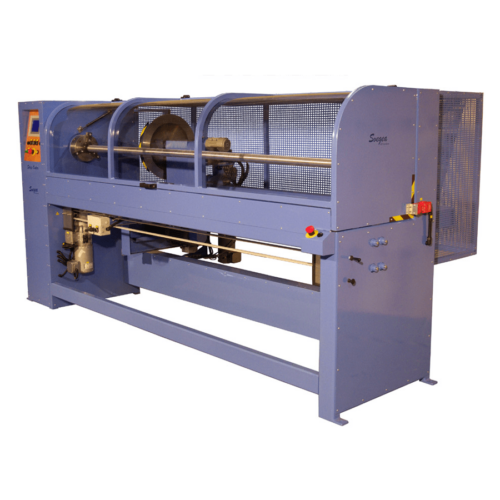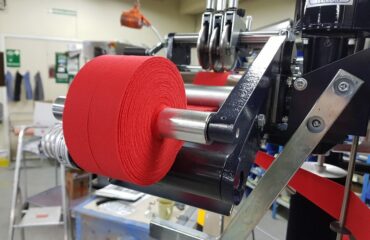The textile industry is transforming significantly as companies increasingly bring production back to local markets. This trend, known as onshoring and reshoring, is gaining momentum in regions such as Europe and North America. Various factors, including supply chain resilience, cost-effectiveness, and the desire for high-quality production, drive the shift. In this blog, we will explore the global trend of onshoring and reshoring in the textile industry, discuss how Svegea’s machinery can support manufacturers in achieving their goals, and highlight the benefits of reduced supply chain risks and faster turnaround times.
The Global Trend of Onshoring and Reshoring
In recent years, the textile industry has seen a notable shift towards onshoring and reshoring. This movement involves relocating production processes closer to home, reversing the decades-long trend of offshoring to countries with lower labor costs. Several factors contribute to this shift:
1. Supply Chain Resilience: The COVID-19 pandemic exposed vulnerabilities in global supply chains, prompting companies to reconsider their reliance on distant manufacturing hubs. By bringing production closer to home, businesses can mitigate risks associated with disruptions and ensure a more stable supply chain.
2. Cost-Effectiveness: Rising labor costs in traditional offshoring destinations, coupled with increased tariffs and transportation expenses, have eroded the cost advantages of overseas production. Onshoring allows companies to better control costs and improve profitability.
3. Quality Control: Local production enables manufacturers to maintain higher quality standards and ensure compliance with stringent regulations. This is particularly important in the textile industry, where product quality and sustainability are paramount.
Benefits of Reduced Supply Chain Risks and Faster Turnaround Times
Onshoring and reshoring offer several benefits that can significantly impact the textile industry:
1. Reduced Supply Chain Risks: By relocating production closer to home, companies can reduce their exposure to geopolitical tensions, transportation delays, and other disruptions. This leads to a more reliable and resilient supply chain.
2. Faster Turnaround Times: Local production allows for quicker response to market demands and faster delivery of products. This agility is crucial in the textile industry, where fashion trends and consumer preferences can change rapidly.
3. Improved Customer Satisfaction: Faster turnaround times and higher quality control contribute to better customer satisfaction. When products are delivered on time and meet quality expectations, customer loyalty and brand reputation are enhanced.
Reshaping the Textile Industry
The trend of onshoring and reshoring in the textile industry is reshaping the global production landscape. By bringing manufacturing processes closer to home, companies can achieve cost-effective, high-quality production while reducing supply chain risks and improving turnaround times. Svegea’s advanced machinery plays a pivotal role in supporting this transition, offering efficiency, sustainability, and flexibility to manufacturers.
Enabling Cost-Effective, High-Quality Production
Svegea, a leading provider of advanced textile machinery, plays a crucial role in supporting manufacturers as they transition to onshoring and reshoring. Svegea’s innovative equipment offers several advantages:
1. Efficiency and Automation: Svegea’s automated textile machines, such as the Fully Automatic Roll Slitting Machine, enhance production efficiency by minimizing waste and maximizing consistency. These machines are designed to handle large volumes quickly and reliably, helping manufacturers meet tight deadlines without compromising quality.
2. Sustainability: Modern textile machinery from Svegea is built with sustainability in mind. These machines consume less energy, use fewer chemicals, and produce less waste. For example, advanced dyeing machines from Svegea use less water and chemicals, reducing the environmental footprint of the dyeing process.
3. Flexibility: Svegea’s equipment is highly adaptable, allowing manufacturers to produce various materials and meet diverse client needs. This flexibility is essential for staying competitive in a rapidly evolving market.
As the textile industry continues to evolve, embracing onshoring and reshoring will be essential for staying competitive and meeting the demands of a dynamic market. To learn more about how Svegea’s machinery can help your business achieve its goals, visit www.svegea.se and contact Hakan Steene at h.steene@svegea.se for personalized assistance.




